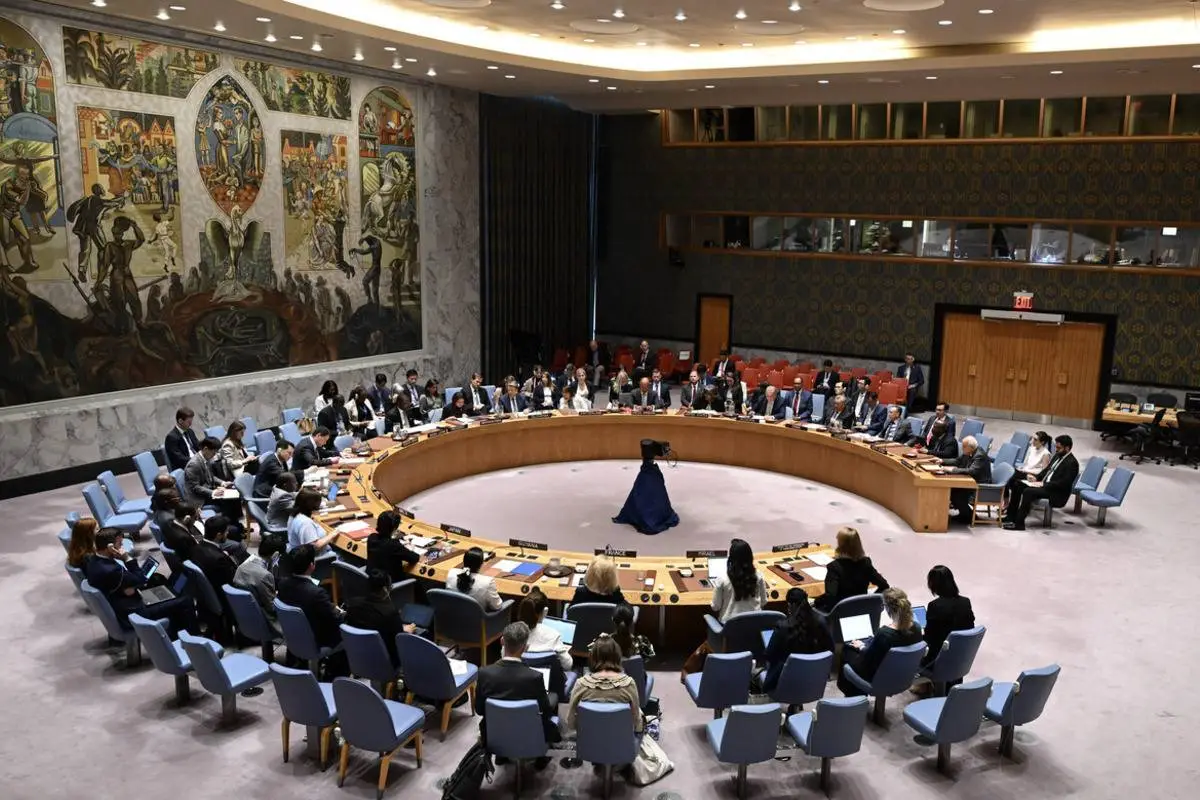New York – On Wednesday, the UN Security Council voted unanimously to extend the arms embargo on Sudan’s Darfur region for another year, a decision reflecting the ongoing international concern over persistent violations of the embargo and the severe humanitarian crisis in the region. The resolution, which extends the sanctions regime until September 12, 2025, continues measures that have been in place since 2005, specifically targeting the conflict-ridden Darfur region.
The renewed sanctions include an arms embargo as well as individual sanctions such as asset freezes and travel bans on three individuals. The extension aims to restrict the flow of weapons into Darfur and impose penalties on those who are found to be contributing to or complicit in destabilizing activities within Sudan.
Deputy US Ambassador Robert Wood emphasized the significance of the decision, stating, “The people of Darfur continue to live in danger and desperation and despair. This adoption sends an important signal to them that the international community remains focused on their plight.” Wood stressed that the sanctions are intended to limit the arms flow into Darfur and target individuals and entities that exacerbate the conflict.
The extension of the arms embargo comes against the backdrop of a devastating civil war that has plagued Sudan for over 16 months. The conflict pits the Sudanese army, led by General Abdel Fattah al-Burhan, against the Rapid Support Forces (RSF), commanded by his former deputy, Mohamed Hamdan Daglo. The fighting has resulted in tens of thousands of deaths and has triggered what the United Nations describes as the world’s worst internal displacement crisis.
The ongoing violence has raised fears of escalating ethnic conflict, particularly in Darfur, which is still scarred by over two decades of brutal conflict. The region’s turmoil is a continuation of the devastation wrought by the Janjaweed militia, which is now part of the RSF. Humanitarian organizations and the UN are deeply concerned that the war could reignite ethnic violence and further destabilize the region.
The decision to extend the embargo saw a notable shift in the positions of some Security Council members. China and Russia, both permanent members of the Council who abstained from the vote in 2023, voted in favor of the resolution this time. Deputy Chinese Ambassador Dai Bing expressed support for the move, stating, “The sanctions will go some way towards stemming the steady flow of illicit arms into the battlefield and calming down and deescalating the situation on the ground.” However, he also noted that the sanctions are “a means, not an end” and should not replace diplomatic efforts.
Despite the extension, the resolution has faced criticism. Jean-Baptiste Gallopin, a researcher for Human Rights Watch, criticized the Council for missing an opportunity to extend the embargo to all of Sudan. Gallopin argued that broadening the scope of the embargo could have addressed the wider impact of the conflict and the flow of arms throughout the country.
The arms embargo has been repeatedly violated, according to the Council’s monitoring experts. Their annual report, published in January, highlighted ongoing breaches, with specific allegations against several countries, including the United Arab Emirates (UAE). The experts accused the UAE of supplying arms to the RSF, a charge that has been strongly contested by Emirati officials.
Sudanese Ambassador Al-Harith Idriss al-Harith Mohamed criticized the extension of the embargo, claiming that it perpetuates an imbalance in the conflict dynamics. He asserted that the UAE plays a significant role in the fighting, and maintaining the embargo solely on Darfur does not address the broader context of the conflict.
In response, the UAE’s representative dismissed these allegations as “baseless” and described them as a diversion from the shortcomings of the Sudanese armed forces.
The extension of the arms embargo underscores the international community’s ongoing commitment to addressing the crisis in Darfur, even as challenges persist in enforcing the sanctions and managing the broader conflict in Sudan. As the Security Council’s resolution takes effect, the global community will continue to monitor the situation, balancing the need for security measures with diplomatic efforts aimed at resolving the conflict and alleviating the suffering of those affected.
